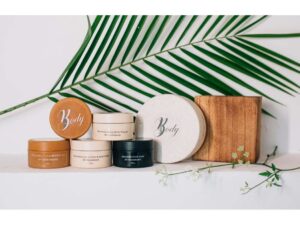In recent years, the beauty industry has witnessed a significant shift towards eco-friendly and sustainable skincare products and packaging. Consumers are becoming more conscious of the environmental impact of their choices, prompting brands to innovate and prioritize sustainability. This blog explores the rise of eco-friendly skincare, highlights some standout sustainable products, and previews upcoming trends and releases in the market.
Why Sustainability Matters
The skincare industry has historically contributed to environmental degradation through the use of harmful chemicals, excessive plastic packaging, and wasteful practices. As awareness grows, consumers are demanding products that not only care for their skin but also the planet. The push for sustainability involves:
- Reducing Plastic Waste: Many brands are transitioning to biodegradable, recyclable, or reusable packaging to minimize plastic pollution.
- Natural and Organic Ingredients: There’s an increasing focus on sourcing ingredients that are organic, sustainably harvested, and free from harmful chemicals.
- Ethical Production: Ensuring fair labor practices and reducing the carbon footprint during production processes.

Standout Sustainable Skincare Products
1. Herbivore Botanicals
Herbivore Botanicals is known for its natural, cruelty-free, and sustainable products. Their packaging is made from glass and recyclable materials, minimizing environmental impact.
2. Youth to the People
Youth to the People uses superfood ingredients and is committed to sustainability with their recyclable glass bottles and eco-friendly shipping practices.
3. Tata Harper
Tata Harper offers 100% natural and non-toxic products. They grow their own ingredients on a farm in Vermont, ensuring full transparency and sustainability.
4. Biossance
Biossance creates skincare products using squalane derived from sugarcane, a renewable resource. Their packaging is also designed to be eco-friendly.
5. Lush Cosmetics
Lush is a pioneer in sustainable beauty, known for its solid products that reduce the need for packaging. Their products are fresh, handmade, and ethically sourced.

Upcoming Trends and Releases
1. Refillable Packaging
More brands are expected to introduce refillable packaging options, allowing consumers to purchase refills instead of new containers, significantly reducing waste.
2. Biodegradable Packaging
Innovations in biodegradable materials will lead to skincare products packaged in materials that decompose naturally, leaving no harmful residues.
3. Waterless Skincare
Waterless skincare products, such as solid cleansers and serums, will become more popular. These products have a smaller carbon footprint and require less packaging.
4. Eco-Friendly Certifications
Brands will increasingly seek certifications like ECOCERT, Fair Trade, and Leaping Bunny to validate their commitment to sustainability and ethical practices.
5. Plant-Based Ingredients
The use of plant-based and lab-grown ingredients will rise, reducing the need for synthetic chemicals and promoting biodiversity.
Conclusion
The movement towards eco-friendly and sustainable skincare is more than a trend; it’s a necessary evolution for the beauty industry. By choosing products that prioritize the environment, consumers can enjoy effective skincare while contributing to a healthier planet. Keep an eye on the innovative products and practices that will shape the future of sustainable beauty.
Stay informed, make conscious choices, and be a part of the change towards a more sustainable and beautiful world!
